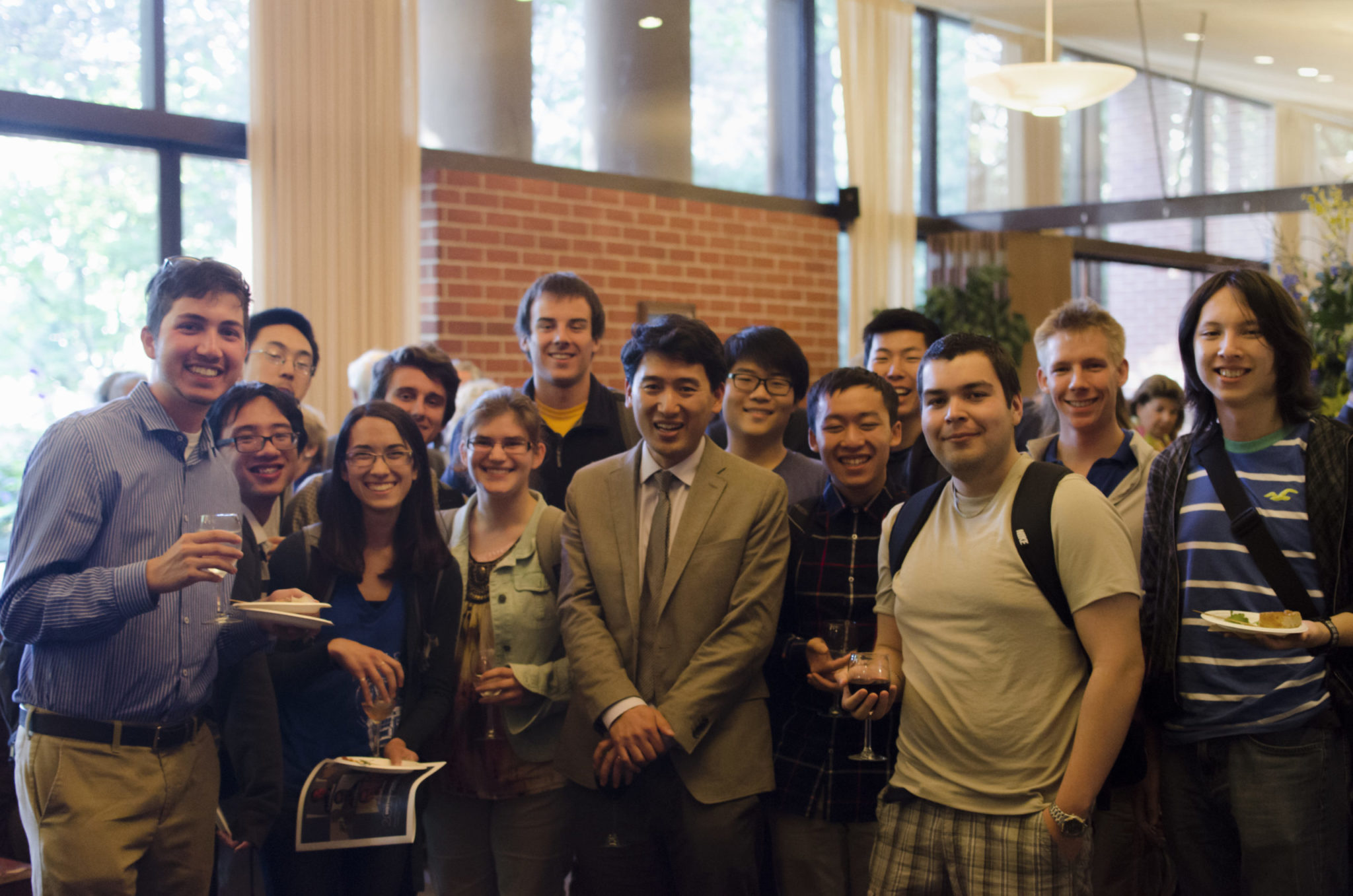Eugene Chiang became a professor of astronomy at UC Berkeley in 2001 with the intention of contemplating the stars. But when he took on the role of writer, producer, director, prop/costume designer, and actor for the department’s annual holiday play, he became one himself, at least within the department.
The plays are generally comedies, rife with YouTube videos, pop-culture references, metaphor, and inside jokes inspired by the department’s politics—everything from new hires and recruitment to classroom dynamics and student-faculty relations. The productions also explore deeper themes, according to Chiang, regarding the “problem of governance; personal responsibility and mutual respect; and—everyone’s favorite—the budget.” According to Chiang, one Visiting Miller Institute Professor remarked that after seeing one of the productions “they learned more about internal department politics in one hour than they did in their entire semester-long stay.”
The production Chiang is most of proud of is from 2015. In Inside-Out: A New Hope, he tackled the scandal brought on by Geoff Marcy, the world-renowned astronomer and potential Nobel laureate who was ruled to have violated university policy by serially harassing women between 2001 and 2010. At first, Chiang didn’t think he could write the play and was prepared to cancel the whole show. But with the help and support of his colleague Aaron Parsons, they found a way to artfully talk about the events using metaphor and plot devices from the movies The Martian and Inside Out.
“I realized only after the performance that our department desperately needed some kind of relief from the unprecedented strain we had to endure that fall,” Chiang says. “The play provided that relief for many of us.”
The students and faculty are often cast to portray one another, impersonating the ticks and vocal cues of their peers and professors, something Chiang says the students manage to “devastating effect.” The productions also push the students and faculty to their limits and they really tax Chiang, who estimates that he puts about 100 hours into every play. The 2015 production had Chiang scouring Bay Area hardware stores the night before the show, gathering chains for ghost characters and toy light sabers for fight scenes. He suffers bouts of anxiety over each production, even months before the show date.
“What do I hate about it? Everything,” Chiang says. He pauses, then adds: “What do I love about it? Everything.”
After a show, when he sees that the students and staff in the department had a good time, he knows it was all worth it. “I take pleasure in making people laugh,” Chiang says. “When the department play works, it creates happy memories that people can share years later. I talk with Berkeley alumni from years ago about the plays we have done, and we practically fall over laughing.”



















